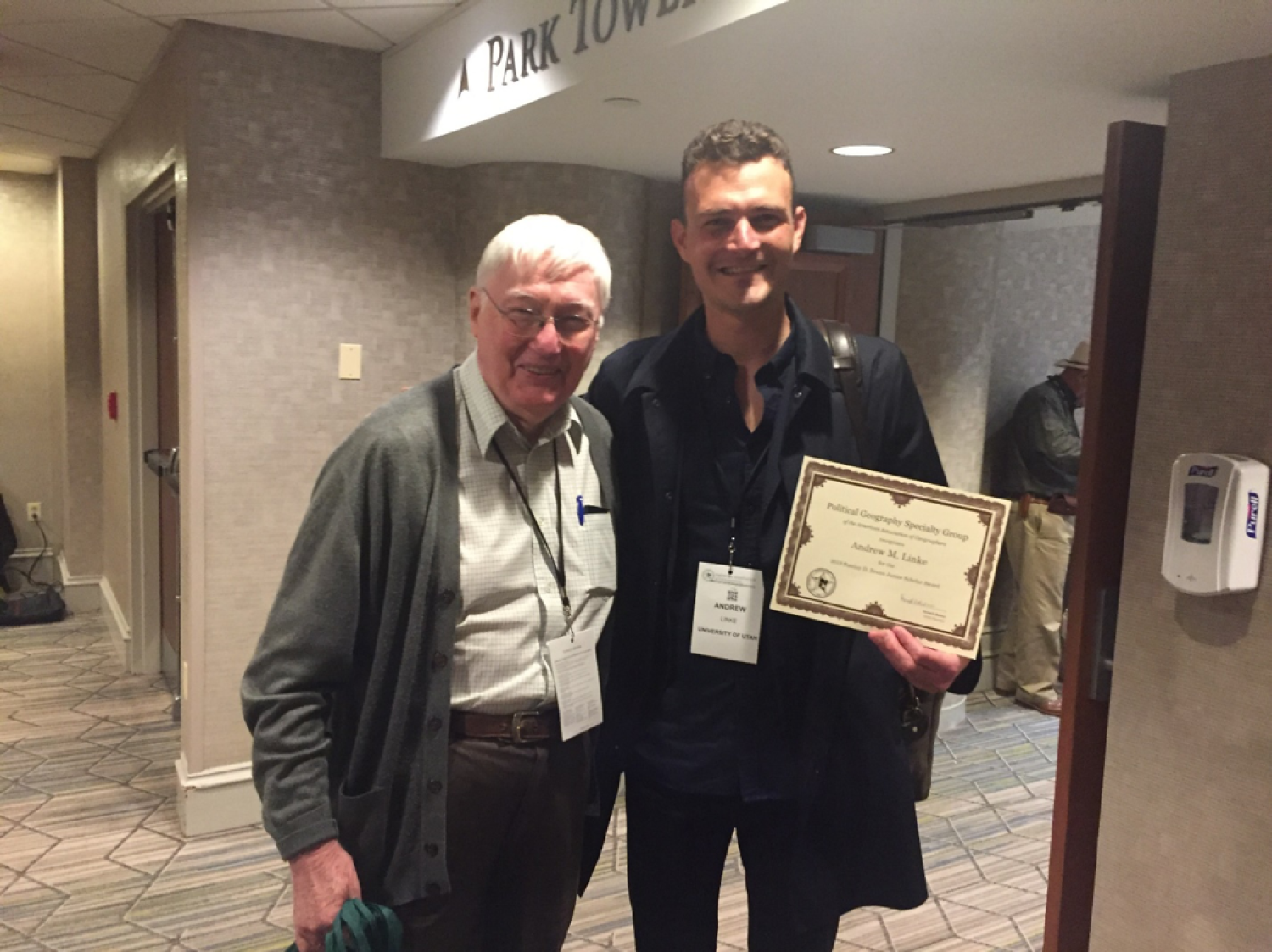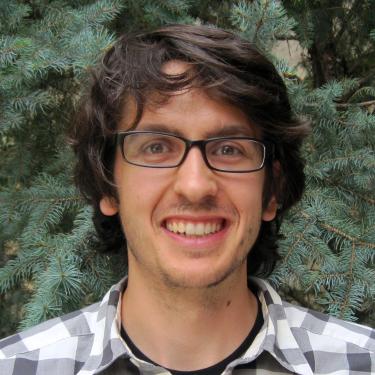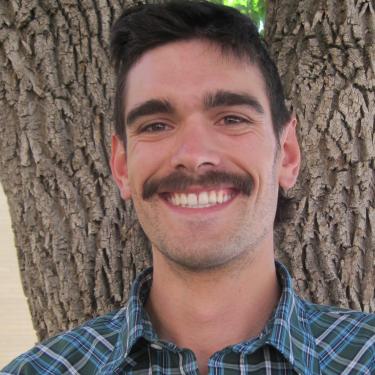
Gina Li (MA, 2019)
In June 2019, Gina Li will be starting a job as a Geospatial Data Engineer at Descartes Labs in San Francisco, CA. Headquartered in Santa Fe, NM, Descartes Labs is a start-up founded by several top scientists from Los Alamos National Laboratory in 2014. The company focuses on building cloud-based geospatial tools that can retrieve and process massive amounts of different types of earth observation data (i.e. satellite imagery and weather) at scale and on the fly. In addition, the company develops machine learning models that can be run on such data in their cloud platform to answer questions regarding natural disasters, the spread of disease, and food security. With the explosion of earth observation data in recent years, there has subsequently been a need to also process and make sense of that data efficiently. Gina writes: “My experience working with Dr. Reid's environmental health group as an RA at CU EarthLab as well as processing my own health and meteorological datasets for my MA thesis in the Geography Department has given me insight and exposure to the importance of geospatial processing to answer real-world questions.”
Kai Kresek (BA, 2018)
I am currently living and working in Washington DC. I'm putting the GIS, remote sensing and research skills I gained in my undergraduate studies to work by helping to manage data and support environmental research at the World Resources Institute. I work as a data specialist with Global Forest Watch, an online platform that provides data and tools for monitoring forests. This platform is used around the world to manage forests, stop illegal deforestation and fires, monitor commodity supply chains and conduct research. I am excited to be gaining more experience with managing and analyzing big data. I also feel very fortunate to be working alongside brilliant colleagues from around the world. I'm also learning more about science communication through direct engagement with the journalists, scientists and advocates who rely on our data.
I feel so fortunate to have been a part of the Geography department! There are so many opportunities for students to take useful courses with knowledgeable and enthusiastic professors, as well as to directly apply the skills they learn in the classroom to research. The remote sensing, GIS and statistics courses have turned out to be extremely useful in preparing me for a career with an environmental research organization, and the interdisciplinary approach that the department takes has given me a solid background in human and physical geography. Research opportunities with Earth Lab, and with professors like Dr. Colleen Reid and Dr. Bill Travis gave me great hands on experience. Geography is such a diverse and vibrant field to work in right now, and I am so thankful that CU Geography influenced me to pursue this career path.
I just want to let the professors and TAs know that they're doing an amazing job! As a student who did the GIS track, the GIS, Remote Sensing and Statistics professors should know that the courses they teach are so incredibly useful, and they are really setting students up for success. Though they were often some of the most difficult courses I took, I use skills I learned in their courses every day! They seem like they have a good idea of what students need to know in order to be successful in the Geography field.
Andrew Linke (PhD, 2013)
Many congratulations CU Geography alum Andrew Linke, currently Assistant Professor of Geography at the University of Utah, for winning the Stanley D. Brunn Junior Scholar Award, given by the Political Geography Specialty Group of the American Association of Geographers.

Andrew Linke (right) posing with Stanley Brunn
Keith Wardrip (MA, 2005)
Since graduating from CU with my master's degree in Geography in 2005, I have had the privilege to pursue research related to community and economic development. My career began in the nonprofit sector in Washington, DC, but for the last seven years, I've worked in the Community Development Department at the Federal Reserve Bank of Philadelphia. Focused on issues impacting low-income communities, my research has run the gamut topically, from affordable housing and employment to community development finance and access to credit. I attribute my own employment opportunities to the instruction and guidance that I received at CU, as well as an internship that provided me with hands-on research experience.
In addition to the knowledge I gained while completing my degree, I created friendships that have lasted through the years. I would be remiss if I didn't mention my advisor, Gary Gaile, who left us too soon but who had an impact on me that was proportional to his size. I didn't realize it at the time, but the weekly Intellectual Cafe that Gary hosted in his office would become one of my fondest memories of the program.
Robert (Bob) Widner (MA, 1992)
My CU Geography degree spurred my life-long interest in land use planning and government regulation. The degree provided a springboard to a Masters in Urban & Regional Planning from UCD and a law degree from the University of Kansas. I now practice law representing government clients with an emphasis in land development and land regulation. Professor Clark's "Urban Geography" class in 1983 was the genesis of my wonderfully enjoyable and successful career.
Helen Louise Young (PhD, 1975)
I am a retired software engineer from Raytheon Company. I established the Louise Young Diversity Lecture Series at my undergrad alma mater, East Central University, Ada Oklahoma. Speakers have included the oldest American woman to have climbed Mt. Everest, a Holocaust Survivor, a Navajo Code Talker, a Tuskegee Airman and R.V. Burgin, a World War 2 Marine who fought in the fiercest battle of the Pacific Therater, the Battle of Pelieu. Burgin recounted his memories in the book, “Islands of the Damned,” which was background material for the Tom Hanks-Steven Spielberg epoch television series on Showtime, “The Pacific.” Burgin was portrayed as one of the Marines.
I taught Geography at my undergrad alma mater, East Central University in Ada Oklahoma from 1971-1974. In ‘74, I took a sabbatical to finish my dissertation. I moved to Denver and wrote about South Park Colorado, “Land and Water Acquisition In Relation to Present and Potential Land Use Change in South Park, Colorado.” In 1970, my Master’s thesis at UCB “The White Rocks Natural Area Study,” was incorporated into a Boulder County publication as one of six natural area studies. Eventually Boulder County preserved these natural areas. I’m proud to have been a part of that project, headed by Professor Emeritus Donald D. MacPhail (d). Dr. MacPhail was my dissertation director and Professor Emeritus M. John Loeffler (d) was my Master’s thesis’s director.
On October 11, 2016, I was a co-presenter at National Coming Out Day along with my wife, Vivienne Armstrong, whom I met at UCB in April 1971 through the campus’s Gay Liberation Front. Both Vivienne and I have been prominent figures in the nation’s LGBTQ rights movement for over 47 years.
Terry Vincent McIntyre (BA, 1961)
In the foreign service, I worked on Law of the Sea for several years. I guess it was because I could read a map. I was an Economics Officer, but spent time as the Resource and Energy Officer in Australia and the southwest Pacific, Brazil, and later Venezuela mainly because I knew a bit about natural resources.
Additionally, I was the Deputy Director of the Fulbright Commission in Brazil for 8 years (where I currently live). Some Geographers passed thru during this time. I have a MS from Oregon State which, at the time, was called “Natural Resources”. I have a PhD in International Studies from American University and I was the first person to pass the first comp there in Geography. They invented something for me!
Other Recent Graduates and Their Theses Titles
- Katherine Hale, M.A, 2018, Streamflow sensitivity to climate warming and a shift from snowfall to rainfall, University of Colorado at Boulder. Current Position: PhD Student in CU Geography
- Keith Jennings, Ph.D., 2018, Evaluating the climatic and energy balance controls on snow accumulation and melt processes in mountain snowpacks, University of Colorado at Boulder. Current Position: Post-Doctoral Researcher, University of Nevada.
- Qinghuan Zhang, Ph.D., 2018, University of Colorado at Boulder, Modeling the hydrology and hydrochemistry of the Boulder Creek watershed.
- Theodore Barnhart, Ph.D., 2018, University of Colorado at Boulder, The response of streamflow and evapotranspiration to changes in snowmelt across the Western United States. Current Position: US Geological Survey, Wyoming-Montana Water Science Center.
Katie Hale Keith Jennings Qinghuan Zhang Theo Barnhart



Emma Hines

Emma Hines
Following graduation this Spring, Emma Hines will start a position as a Research Fellow with the Centers for Disease Control and Prevention’s Climate and Health Program. Emma will receive training focusing on assessing health vulnerability and risk to the impacts of climate change, as well as receiving mentorship from staff scientists through team projects, all while applying her existing skills and learn new techniques related to statistical analysis, GIS mapping, and risk assessment. Emma’s work will involve using varying methodologies including literature review, data acquisition and cleaning, epidemiological analysis, and development of guidance documents and technical assistance to aid health departments in assessing and addressing health impacts arising from flooding, wildfires, and extreme heat. Emma will also have the opportunity to participate in relevant trainings, workgroups, communities of practice, meetings and conferences to further my knowledge and skills.
